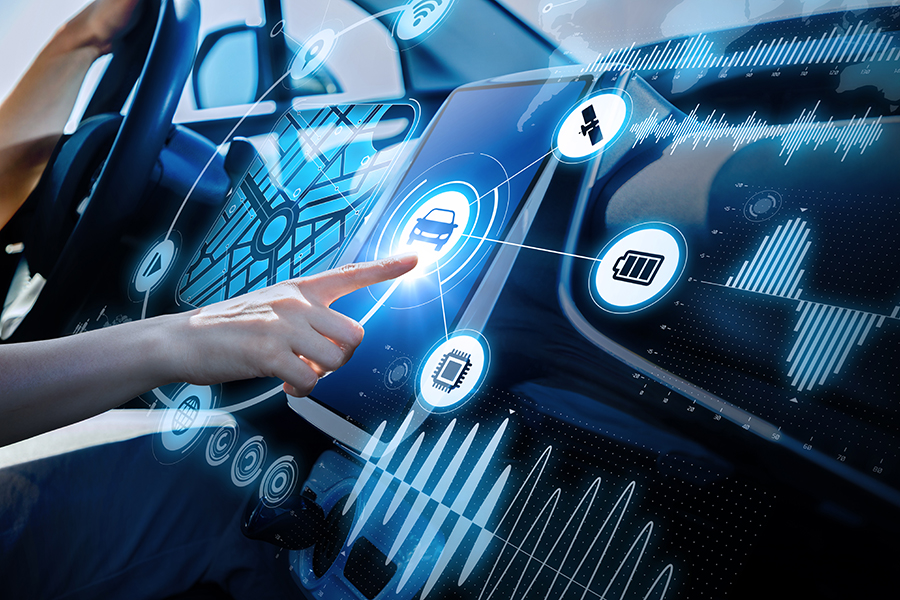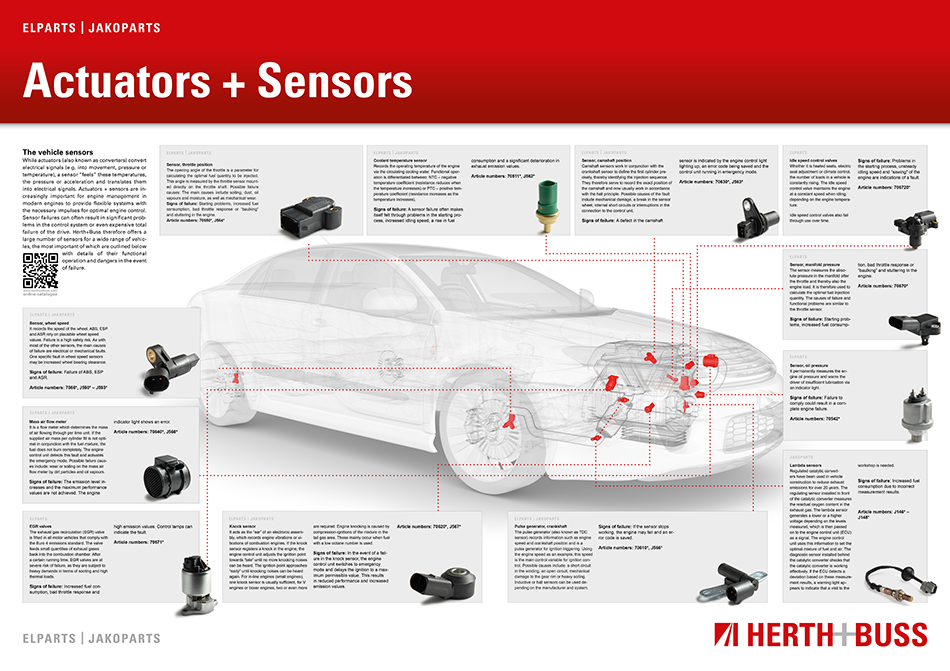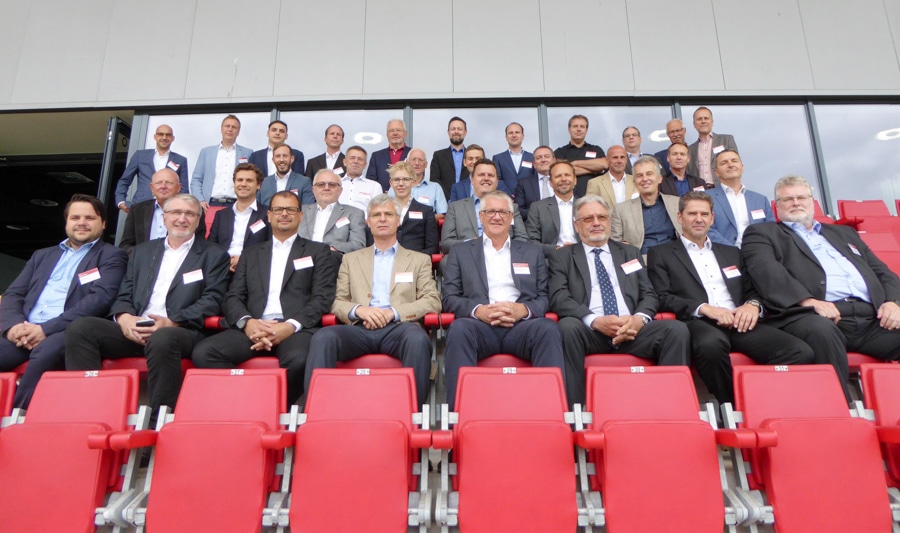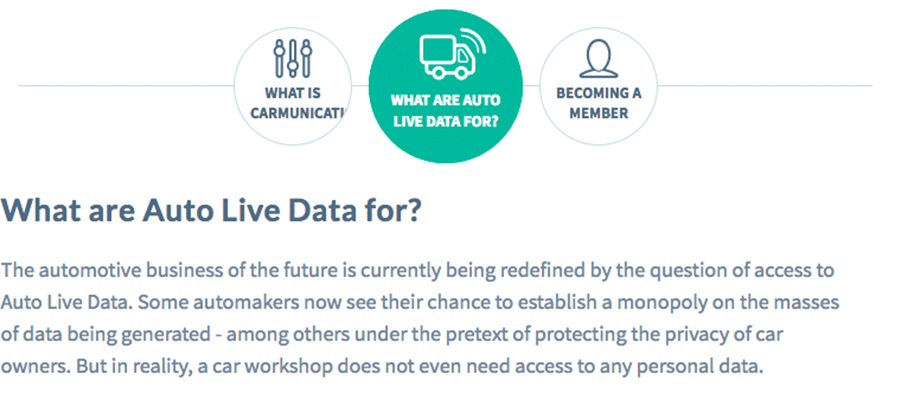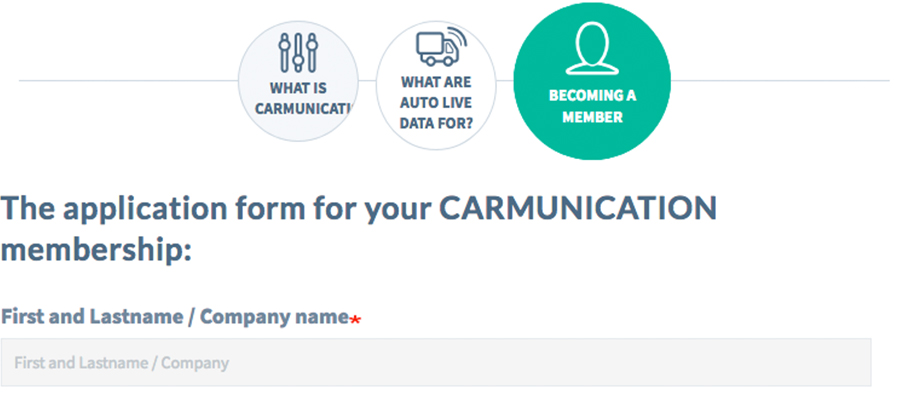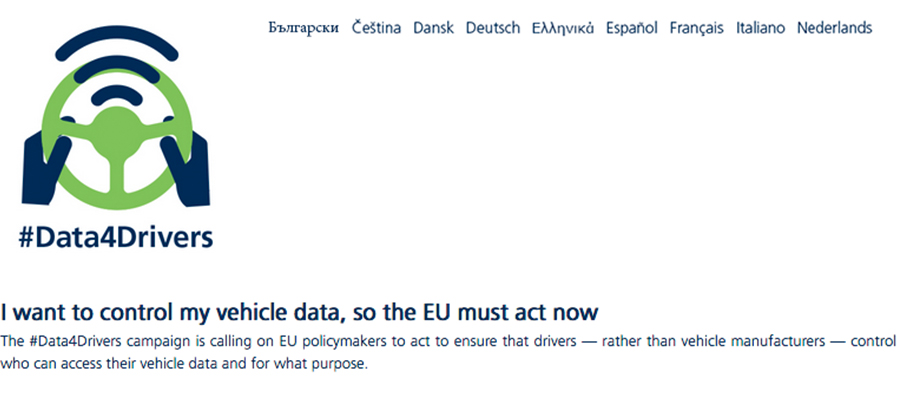One thing is clear: The number of vehicles producing large volumes of data is increasing rapidly. Depending on the model, more than 100 sensors may well be collecting up to 7,000 items of vehicle data. So a modern vehicle can be viewed as being a computer on wheels.
What sort of data is collected?
Vehicle data such as acceleration values, speeds driven or GPS data. This also includes routes taken and last destinations or places stored in general. On top of that, it is no problem to call up mileages, measurable vehicle performance data and wear data. And that is only a fraction of the data that is captured at many other points in the car.
You can see some of the data collectors in your car on our Actuators+Sensors poster.
But what then happens to my vehicle data?
Quite simply: It ends up on the vehicle manufacturers' servers! So far so good - or perhaps not? There is however something of a hitch to the whole thing: We as vehicle owners have virtually no access to this data. Manufacturers such as BMW allow us to view some of the data generated by our own car. But only for a fee, of course. In other words, we have to pay a lot of money for something that belongs to us anyway and isn't even very informative – that's crazy.
Various manufacturers see this as an opportunity to acquire a monopoly on the data produced by vehicles. The manufacturers justify this by claiming to protect the privacy of the vehicle owners - or use it as an excuse. Independent workshops do not however require access to any personal data to be able to perform repair work. All that workshops need is data for fault diagnosis and on wear, or the details of maintenance service due. Such data is also produced by the vehicle.
What does that mean for the IAM (Independent Aftermarket)?
If vehicle manufacturers succeed in gaining a monopoly, one of the consequences will be that independent workshops will no longer be able to offer their customers rapid fault diagnosis, the best possible service and repair work. Independent workshops will quite simply not be in a position to carry out the necessary repairs. This will of course also have a major negative influence on sales in the spare parts trade. To put it quite bluntly, the IAM will suffer in the long term.
In June, Herth+Buss organised an industry workshop at which vehicle data was the subject of lively discussion.
What action is Herth+Buss taking, and what can I do myself?
As full members, we support the work of the CARMUNICATION association. This non-profit-making association is committed to the cause of fair competition. The aim of CARMUNICATION is to ensure that companies in Europe have free access to vehicle data.
CARMUNICATION supplies the data
CARMUNICATION collects relevant vehicle data and makes it available to all members on the CARMUNICATION platform. This data shows whether there are any problems with a vehicle, for example. It is then also quick and easy to answer questions about how a vehicle is performing or whether or not service is necessary, for instance. Another matter of particular interest to us is how often which components fail in which vehicle models. This knowledge enables us to improve the quality of our products and reduce the failure rate. You can find out more about why Auto Live data is important by visiting: https://www.carmunication.eu/auto-live-data-what-for
Motorists who supply their data to CARMUNICATION for example can view the data whenever they want in the privacy zone and decide who else is allowed to see the data. The same naturally also applies to vehicle fleet operators and many other users. If you want to actively help to prevent data monopolies in the Auto Live data business, you too should become a member. This gives you the opportunity to play your part in ensuring fair opportunities and free data access. Simply sign up here as a business, consumer or information member.
https://carmunication.eu/becoming-a-member#no-back
Anyone wanting to find out more about vehicle data can meet up with CARMUNICATION at the Automechanika in September in Frankfurt. You will find them at Stand A12 in Hall 4.
https://www.carmunication.eu/automechanika-frankfurt-2018
The Data4Drivers campaign
Another way of becoming actively involved is to join the Data4Drivers campaign. This is a petition intended to launch an appeal directly to EU decision-makers. It demands an assurance that drivers, and not vehicle manufacturers, should have sovereignty over their vehicle data. Motorists must be allowed to decide who can use their data, and for what purpose.
Find out more about the #Data4Drivers campaign at
https://www.data4drivers.eu/

